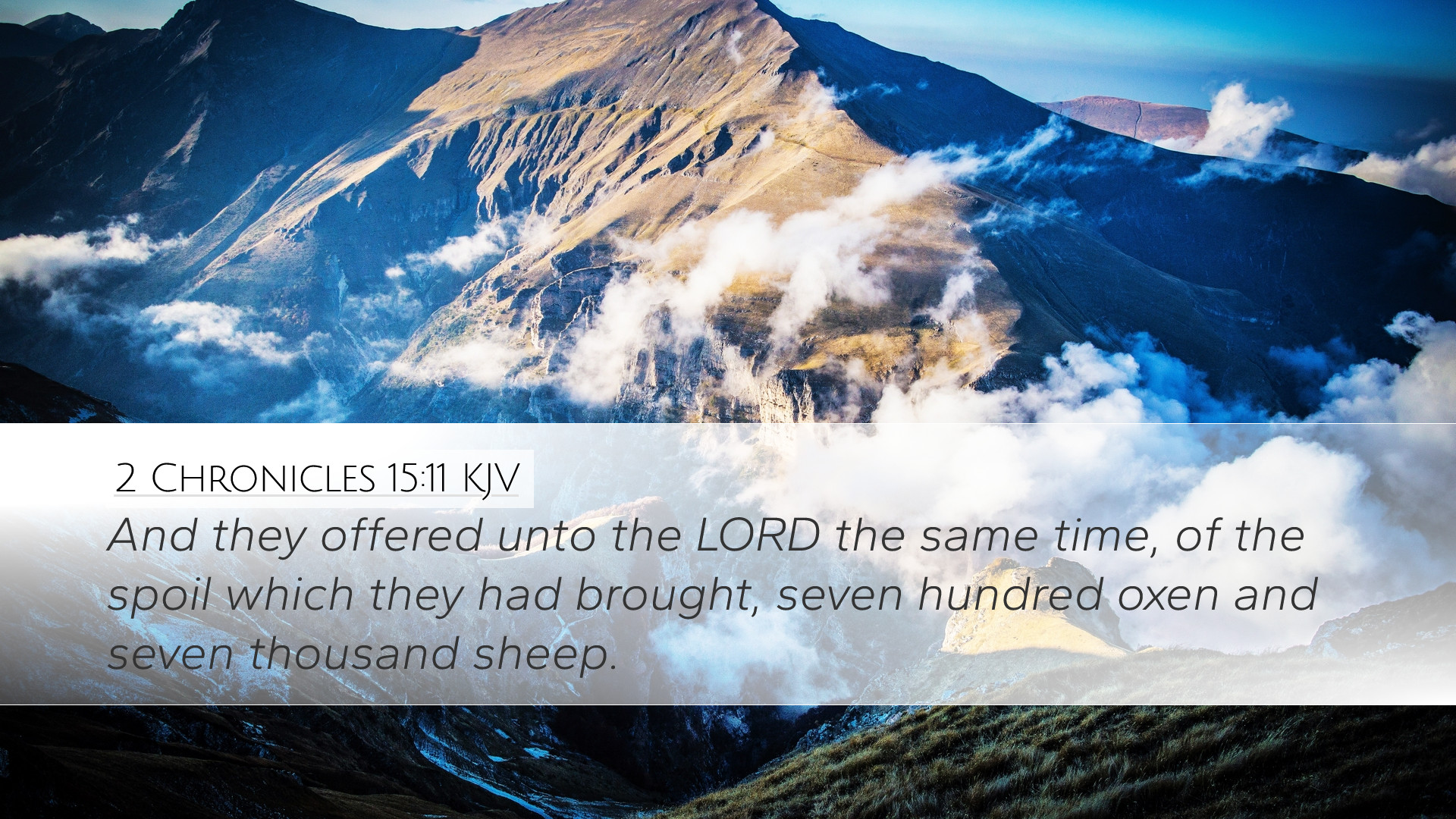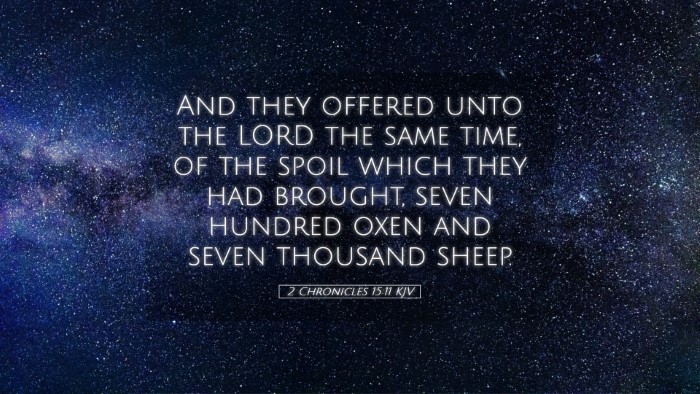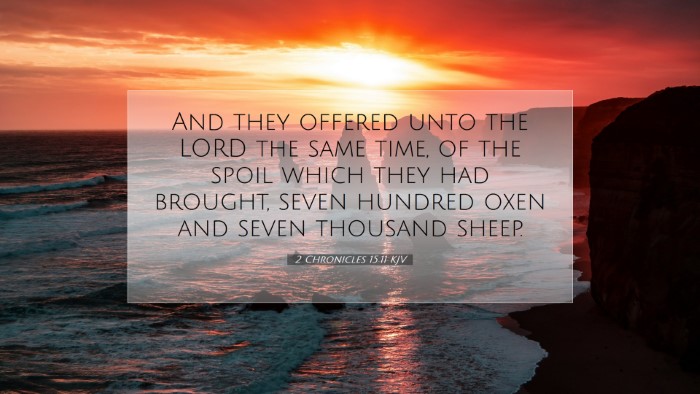Commentary on 2 Chronicles 15:11
Verse Reference: 2 Chronicles 15:11 - "And they offered unto the Lord the same time, of the spoil which they had brought, seven hundred oxen and seven thousand sheep."
Contextual Overview
This verse is situated within a pivotal moment of reform in Judah under King Asa. Asa’s reign marks a significant time when the people of Judah turned back to the Lord after years of apostasy and conflict. The historical context is essential for understanding the depth of this offering. Asa had just received a great victory over the Cushites, which was interpreted as divine favor.
Significance of the Offering
The offering of seven hundred oxen and seven thousand sheep is substantial, indicating an act of gratitude and dedication to God. Matthew Henry emphasizes that these offerings were not mere token gifts but rather were a response to the overwhelming blessing of victory delivered by God. The act of giving from one's spoils signifies recognition of God’s providence in their lives.
Symbolism of the Numbers
Numbers in Scripture often carry symbolic significance. The number seven frequently represents completeness and divine perfection. The offering of seven hundred oxen and seven thousand sheep might symbolize the completeness of their praise and thanksgiving to God for His divine intervention.
Connection to Covenant and Worship
In the context of the Mosaic Covenant, offerings served as a means of worship and affirmation of loyalty to God. Albert Barnes notes that this act of sacrifice was deeply connected to their renewed commitment to the Lord. The significant offering reflects their understanding of God’s holiness and their desire to reconcile their nation back to Him.
Public and Corporate Worship
This offering reflects a communal act of worship. The people collectively presented their sacrifices, which serves as a model for corporate worship among God’s people. Adam Clarke suggests that this public acknowledgment of God’s provision was essential for fostering communal identity and strength in faith.
Application for Today
For pastors, students, and theologians, this passage is a reminder of the importance of gratitude in our worship. In a contemporary context, the practice of giving should also be viewed through the lens of abundance and recognition of God’s blessings. The act of giving in worship remains a vital expression of faith and communal identity.
Reflections on Sacrificial Giving
- Gratitude: Reflect on the blessings that one has received and return to God in thanks through acts of service and generosity.
- Worship as Community: Encourages participation in corporate worship, emphasizing the unity of believers in acknowledging God’s goodness.
- Commitment to Justice: Sacrificial giving can be seen as a commitment to furthering God’s kingdom, echoing the themes of repentance and restoration present in the chapter.
Conclusion
2 Chronicles 15:11 encapsulates a moment of profound worship and acknowledgment of God's sovereignty in Israel. It illustrates the power of corporate worship and sacrificial giving as vital elements of a renewed relationship with God. This passage serves as an enduring reminder for believers to express gratitude through tangible acts of worship.


